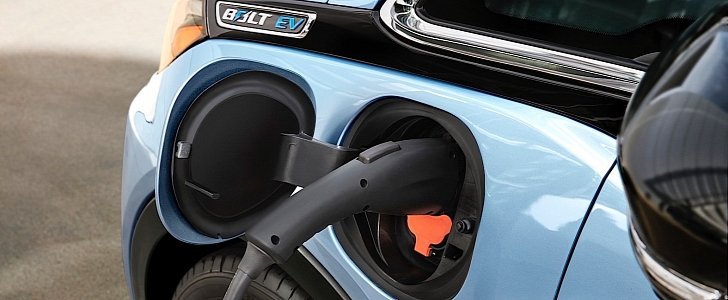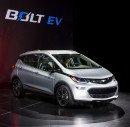Ever since Chevrolet rolled out the Bolt in the United States in December 2016, the small electric hatchback has constantly been criticized. First there was the lack of adaptive cruise control, then there’s CCS DC fast charging, which is a $750 option.
Then there’s page 322 of the owner’s manual, where you’ll find a line that goes like “the battery may degrade as little as 10 to as much as 40 percent of capacity over the warranty period [eight years or 100,000 miles].” The lithium-ion battery in the Tesla Model S, for reference, degrade less than 10 percent over the same period.
But then, the recalls came in, and they came on strong. On this occasion, the recall is dressed as a “customer satisfaction bulletin,” issued under number N172127150. Care to guess how the bulletin is titled? “Loss of Propulsion High Voltage Battery Without Notification.”
According to Chevrolet, certain vehicles built for the 2017 model year “may have a condition where the calibration will not detect the difference in the state of charge between the cell groups of the battery.” Without further beating around the bush, that means the Bolt doesn’t provide a warning prior to the low-voltage condition, which results in the sudden loss of propulsion.
The fix comes in the guise of reprogramming the “hybrid powertrain control module 2,” which the owners will be notified about through OnStar. On that note, let’s take a trip down memory lane.
Back in August 2017, the automaker informed “a few hundred” owners of the Bolt that their cars could suffer from a problem with the 60-kWh battery. The battery management system is to blame for the failure, with LG Chem identifying a malfunction in one or more of the 288 battery cells in the affected vehicles. The vehicles in question represented less than 1 percent of all Bolt EVs built until that moment in time.
Addressing the issue, Chevrolet decided to replace the lithium-ion batteries of all the affected vehicles.
But then, the recalls came in, and they came on strong. On this occasion, the recall is dressed as a “customer satisfaction bulletin,” issued under number N172127150. Care to guess how the bulletin is titled? “Loss of Propulsion High Voltage Battery Without Notification.”
According to Chevrolet, certain vehicles built for the 2017 model year “may have a condition where the calibration will not detect the difference in the state of charge between the cell groups of the battery.” Without further beating around the bush, that means the Bolt doesn’t provide a warning prior to the low-voltage condition, which results in the sudden loss of propulsion.
The fix comes in the guise of reprogramming the “hybrid powertrain control module 2,” which the owners will be notified about through OnStar. On that note, let’s take a trip down memory lane.
Back in August 2017, the automaker informed “a few hundred” owners of the Bolt that their cars could suffer from a problem with the 60-kWh battery. The battery management system is to blame for the failure, with LG Chem identifying a malfunction in one or more of the 288 battery cells in the affected vehicles. The vehicles in question represented less than 1 percent of all Bolt EVs built until that moment in time.
Addressing the issue, Chevrolet decided to replace the lithium-ion batteries of all the affected vehicles.


























